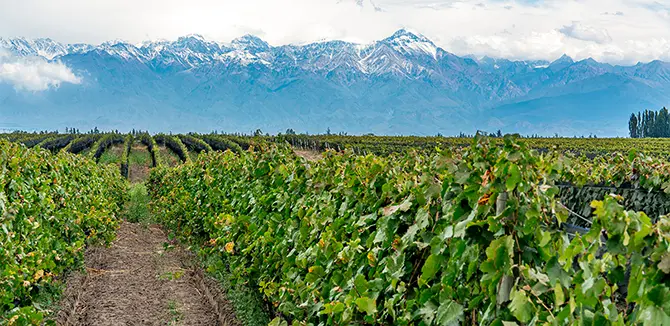Jumping Into Sustainable Farming
Ankur Seth (MSES ‘22) relies on his MSES education as a senior product lead for sustainable agriculture certification at Rainforest Alliance.

Ankur Seth (MSES ‘22) is a highly coveted frog’s gatekeeper.
Seth is a senior product lead for the certification platform at Rainforest Alliance, a non-governmental organization founded in 1987 to protect the world’s forests. In that role, he manages the Alliance’s core certification platform, which users log-in to submit data pertaining to their farming practice, geo-risk assessment, social, and environmental indicators. These data points are used for ultimately obtaining a Rainforest Alliance certificate and seal (that depicts a green frog).The seal conveys that a particular product contains ingredients farmed using sustainable practices.
Seth began the role shortly after his graduation from Northwestern's Master of Science in Energy and Sustainability (MSES) program, a joint offering by Northwestern Engineering and the Paula M. Trienens Institute for Sustainability and Energy.
The certification platform users are largely smallholder farm groups from around the globe. Rainforest Alliance’s standard encourages these farm groups to incorporate sustainability practices to ensure social, environmental, and livelihoods protection.
The standard places smallholder farmers at the center — those who produce agricultural products on a smaller scale, typically with labor from the farm owners and their families.
“Our food system is inextricably linked to most of the sustainable development goals and contributes to around a third of the global greenhouse gas emissions,” Seth said. “Hence, major sustainability efforts, increasingly through the application of technology, are being directed toward making smallholder farmers more sustainable.”
The balance between classroom learning and projects with industry partners, as well as its strong faculty, drew Seth to MSES.
“Before the program, I understood food sustainability largely through an agriculture production lens, but during the program I got the opportunity to dig deeper into other aspects of the food supply chain,” he said. “Working on cases such as vertical farming, carbon capture, and food waste opened up an entirely new segment for me in terms of potential future roles, geographies, and organizations.
"My work allows me to apply mainstream technology and strategy practices to the field of agriculture sustainability."
Seth, who worked on agricultural technology projects in Asia and Africa prior to MSES, was interested in learning more about farming and food supply chain in the United States and surrounding regions.
“What became clear with the discussions in class is that while there were regional differences, there were also several common threads,” he said. “I learned that while different regions in the world may build a custom climate and sustainability approach, there is a large scope for inter-regional exchange of knowledge to accelerate implementation of solutions.”
One of Seth’s most notable experiences came through his selection for the Northwestern Sustainability Fellowship, which provides practical experience in sustainability energy management for a non-profit or municipal client. The fellowship links students from MSES with other Northwestern University students to tackle a sustainability project.
Seth and his fellows cohort worked on a project involving urban food security.
“Because the fellowship was open to other schools at Northwestern, it allowed for a layered solution for our client,” he said. “We were able to weave together an approach that included concepts from management strategy, sustainability, and technology, including recent lessons we were being taught in the program.”
Now with more than a year of experience at the Rainforest Alliance, Seth looks forward to helping build sustainability efforts around the world, and ultimately expanding the coverage of green-frog seals.
He will continue to lean on his MSES experiences as he pursues those goals, he said.
“Learning about sustainability efforts in other sectors such as oil and gas, mining, and power generation gave me an ability to see the bigger picture," Seth said. "MSES provided me with a lifelong link to a network of professionals in all of the above sectors, which gives me a lot of inspiration and confidence to continue doing high impact work.”